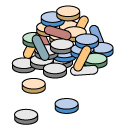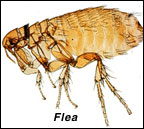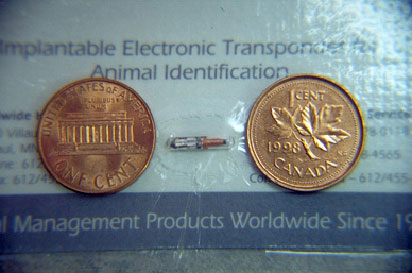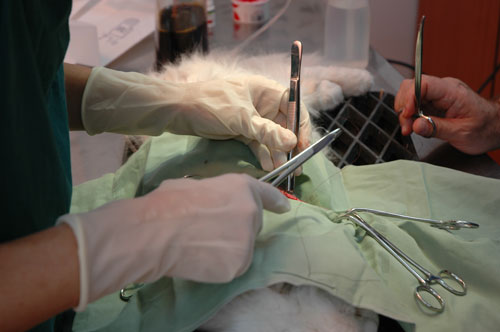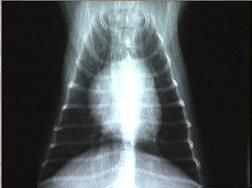Minimally Invasive Radiowave Technology
Sharp Animal Hospital is committed to providing state of the art veterinary care. We are one of the first hospitals in our area to offer the benefits of radiowave surgery for your pet. The radiowave unit energizes a microfiber tip with high frequency radiowaves which provide a specific and delicate tissue interaction. This is done so precisely that the normal surrounding tissues are hardly affected.
The radiowave procedure does not tear, crush or bruise tissue due to the lack of physical contact. It is able to seal nerve endings and small blood vessels as it “cuts”. We are pleased to offer radiowave surgery as an exciting option for safe, comfortable treatment. In most procedures, the radiowave surgery can replace the scalpel.
WHAT IS RADIOWAVE SURGERY?
RADIOWAVE SURGERY PROVIDES A TACTILE, BUT PRESSURELESS, INCISION WHICH ALLOWS THE DOCTOR TO SENSE WHAT HE IS CUTTING. THERE IS NO RISK OF ACCIDENTALLY BURNING OTHER AREAS OF TISSUE THROUGH REFLECTION OR PENETRATION OF A LIGHT BEAM(AS WITH LASER).
RADIOSURGERY OFFERS:
LESS PAIN = Radiosurgery seals nerve endings as it moves through the tissue .
LESS BLEEDING = Radiosurgery seals small blood vessels during surgery.
LESS SWELLING = Radiowave surgery produces a low temperature cutting which produces less tissue swelling.
REDUCED RISK OF INFECTION = Laser sterilizes as it removes diseased
tissue, killing bacteria that cause infection.
PRECISION = Radiowave surgery can remove unhealthy tissue while minimizing adverse effects to healthy surrounding tissue.
QUICK RETURN TO NORMAL ACTIVITIES = Recovery is rapid and there is less post-operative discomfort.

